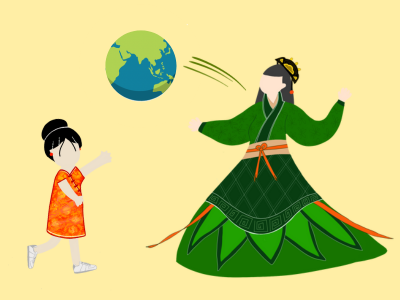Passing down culture

Graphic illustration by Maple Leung and Jasmine Rihal
Passing down culture from generation to generation
June 2, 2023
Religion, superstition and culture have been passed down for ages, continuing to influence and impact each new generation, furthering the connection between people and their histories. Blood doesn’t solely connect us to our past; instead it is the ideas and cultures that form long-lasting bonds.
For centuries, the older generation has passed down their way of life to the newer generation, allowing their legacies to continue years later. Religion is one element that continues to influence newer generations, and while it carries the influence of its starting years, it evolves and adapts to the current day.
“Religion provides a set of morals and values to live by,” sophomore Athreyer Iyer said. “It gives you structure and helps you develop good habits, but there are also other ways to find a connection to your culture and past.”
Religions such as Hinduism and Christianity can help devotees find a routine that guides their lifestyle. In Hinduism, for instance, the practice of Sandhyavandanam guides people to wake up at sunrise and complete ritual praying. This helps instill discipline and principle in practitioners’ lives.
“Religion serves as one way to make sense of being, of existing, as well as serving as a foundation for how to exist,” De Anza College Sociology Professor Kamau Birago said.
“Relaying the past to the present can help newer generations understand their ancestry and history in different perspectives.”
Cultural traditions and customs can also strengthen the cultural connection between the newer generation and their ancestry. Cultural transmission happens in several forms, whether that be through family teachings and language or material items such as clothes. Cultural wardrobe, like kilts and saris, are ways that people stay connected to their culture. Adaptations and modernizations make these generational connections more applicable and customizable to each person that adopts their culture. Hearing the voices of past generations can also shape one’s identity and beliefs.
“You always carry a part of your ancestors with you when you follow cultural beliefs,” freshman Nithya Kanagala said. “If people in your culture have certain morals, the next generation may have similar morals, and pass them on to the next generation — it’s a cycle.”
While passing down customs can nurture bonds between generations, it may have disadvantages. Traditions and customs concerning prejudice and discrimination have often been harmful to society.
With the freedom to define the newer generations, the possibilities of cultural redefinition are endless.



























































